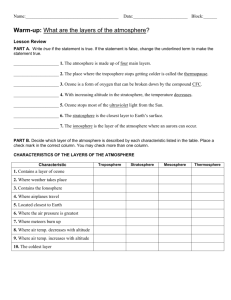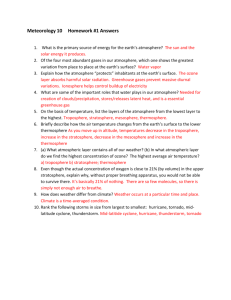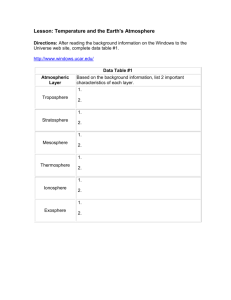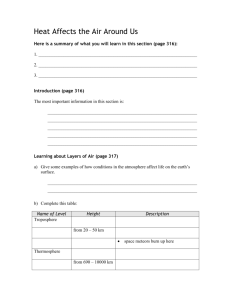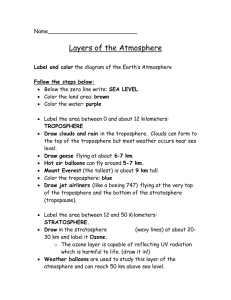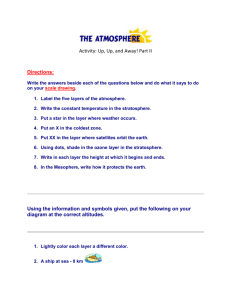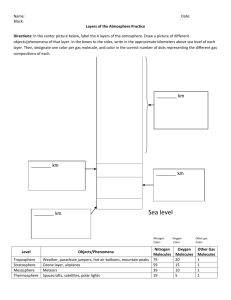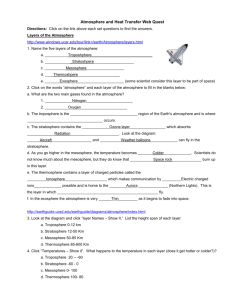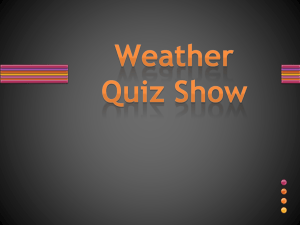NAME ________________________________________________________ PERIOD ________________________
advertisement
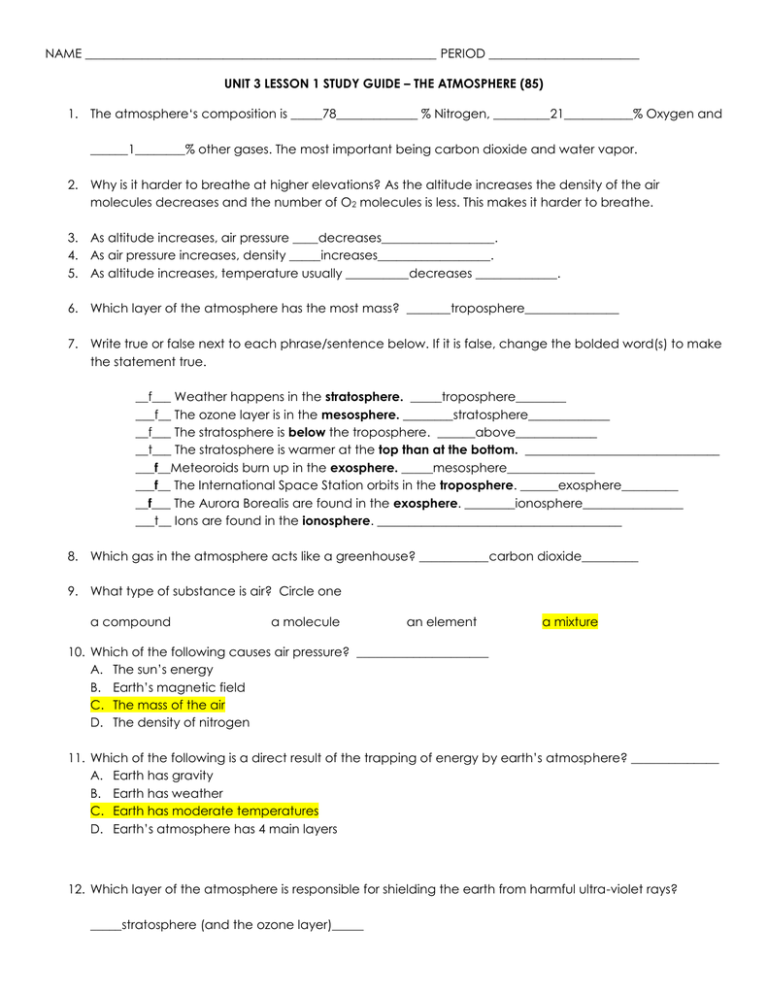
NAME ________________________________________________________ PERIOD ________________________ UNIT 3 LESSON 1 STUDY GUIDE – THE ATMOSPHERE (85) 1. The atmosphere‘s composition is _____78_____________ % Nitrogen, _________21___________% Oxygen and ______1________% other gases. The most important being carbon dioxide and water vapor. 2. Why is it harder to breathe at higher elevations? As the altitude increases the density of the air molecules decreases and the number of O2 molecules is less. This makes it harder to breathe. 3. As altitude increases, air pressure ____decreases__________________. 4. As air pressure increases, density _____increases__________________. 5. As altitude increases, temperature usually __________decreases _____________. 6. Which layer of the atmosphere has the most mass? _______troposphere_______________ 7. Write true or false next to each phrase/sentence below. If it is false, change the bolded word(s) to make the statement true. __f___ Weather happens in the stratosphere. _____troposphere________ ___f__ The ozone layer is in the mesosphere. ________stratosphere_____________ __f___ The stratosphere is below the troposphere. ______above_____________ __t___ The stratosphere is warmer at the top than at the bottom. _______________________________ ___f__Meteoroids burn up in the exosphere. _____mesosphere______________ ___f__ The International Space Station orbits in the troposphere. ______exosphere_________ __f___ The Aurora Borealis are found in the exosphere. ________ionosphere________________ ___t__ Ions are found in the ionosphere. _______________________________________ 8. Which gas in the atmosphere acts like a greenhouse? ___________carbon dioxide_________ 9. What type of substance is air? Circle one a compound a molecule an element a mixture 10. Which of the following causes air pressure? _____________________ A. The sun’s energy B. Earth’s magnetic field C. The mass of the air D. The density of nitrogen 11. Which of the following is a direct result of the trapping of energy by earth’s atmosphere? ______________ A. Earth has gravity B. Earth has weather C. Earth has moderate temperatures D. Earth’s atmosphere has 4 main layers 12. Which layer of the atmosphere is responsible for shielding the earth from harmful ultra-violet rays? _____stratosphere (and the ozone layer)_____ 13. Which explains why cloudy nights tend to be warmer than clear night? _______________ A. Clouds store and release energy from earth’s interior B. Clouds trap heat energy (absorbs it) C. Clouds generate wind D. Clouds reflect energy from the sun 14. Define atmosphere: mixture of gases that surrounds the Earth 15. Draw the four main layers of the atmosphere. Place the lowest layer on the bottom. Thermosphere Mesosphere Stratosphere Troposphere 16. What are the two sub-divisions of the thermosphere? Ionosphere exosphere (highest layer) 17. Draw and label a pie chart for the composition of the atmosphere. See pg. 106 in book 18. Air moves from ______high_______________ pressure to ______low________ pressure. 19. Why did the Peep expand when the air was taken out of the vacuum chamber? When the air was taken out of the vacuum chamber it became low pressure. The air in the peep was high pressure. Air moves from high to low pressure. The air in the peep is trying to get into the chamber. The peep is in the way and expands as the molecules are trying to get into the chamber.
